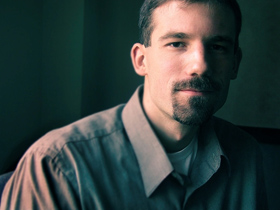The official text...
Mark Mortensen studies the changing structure of team work. Moving beyond traditional models of hierarchical organizational structure and the more recent emphasis on teams, his research explores new team structures that do not fit historical models of team dynamics, yet are increasingly prevalent in today’s globally-dispersed, fast-moving economy. In particular, his research focuses on two such structures through the examination of both globally distributed and project-based teams.
In his first stream of research, he studies the effects of geographic dispersion and technology mediation on interpersonal interaction. Moving beyond our traditional understanding of teams as collocated individuals, his research explores the effects of physical, temporal, technological, and configurational distance on team dynamics. His recent research has examined the differing nature of conflict in geographically collocated and distributed teams – in particular, the intervening effects of shared identity, shared context, and spontaneous communication on the relationship between distribution and conflict. He is currently examining the impact of structure on team effectiveness through a series of related studies examining the roles of imbalanced subgroups and geographic isolates on individual and team dynamics. He is also conducting research on the relationship between contextual knowledge interpersonal ties across distributed locations, and the role of expatriate assignments in brokering and forming those links.
In his second stream of research, he studies the effects of project-based work on our traditional understanding of team dynamics. It is becoming increasingly difficult to find individuals working in the traditional “one-person, one-team” context – as most individuals work on multiple, partially overlapping, fluidly shifting projects. This raises numerous questions about the applicability and relevance of traditional models of team dynamics and processes. His recent research in this area has discovered and explored the phenomenon of team boundary disagreement, wherein team members disagree on the membership of their teams. His research has identified key antecedents and effects on team level outcomes including performance, conflict, and knowledge management. More recently, he began studying the individual, team, and organization-level effects of multiple team membership.
Awards & Recognition
Mark Mortensen's research has been recognized in the academic community through a number of awards. These awards include: 2004 William H. Newman award for best paper based on a recent dissertation (Academy of Management Conference), 2004 Best Dissertation-Based Paper award (Academy of Management Organizational Behavior division) 2001 Runner-up Best Paper award (Academy of Management Organizational Communication and Information Systems division).
Teaching...
He is currently teaching 15.311: Organizational Processes in the MBA Core. Previously he has taught courses in Organizational Behavior, Team Dynamics, and Contextual Human Computer Interaction Design and led McGill University's MBA Study Tour in China.

 ©2005 Mark Mortensen
©2005 Mark Mortensen